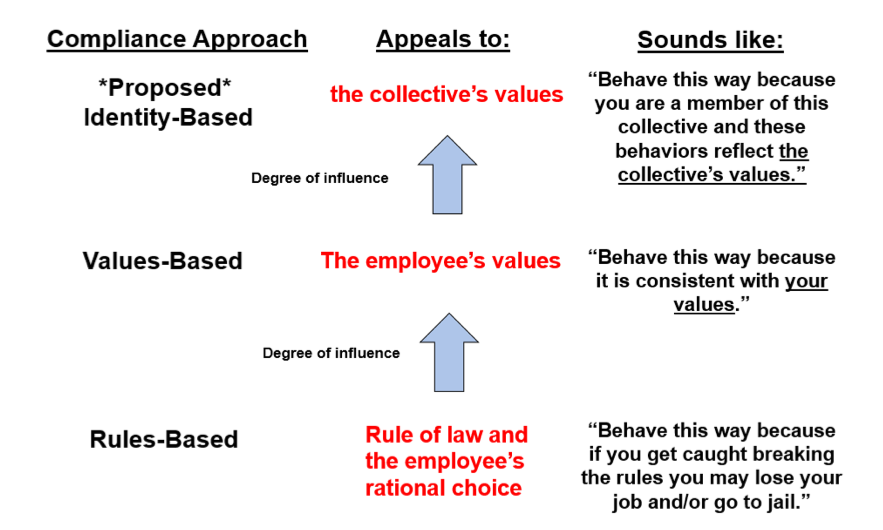Duncan McCampbell (duncan.mccampbell@metrostate.edu) is Assistant Professor of International Business and Law, MBA Program Director at Metropolitan State University in Minneapolis, MN.
Part 2 of this article appeared in the February 2018 issue of Compliance & Ethics Professional.
A new, identity-based approach to foreign compliance
Last month we reviewed some of the reasons why the corporate function of Compliance is challenging in countries that have different cultures and well-known problems with corruption. The key to anti-corruption compliance in any country or culture is behavior modification. Compliance professionals seek to influence the thinking and behavior of company employees, bending them away from thinking and courses of action that could result in liability for the company. But how you go about influencing an individualist (largely Western countries) and collectivist (the East and much of Latin America and Africa) is very different.
Collectivists are influenced—some say defined or even formed—by relationships among their in-group, their collective. Contrast this idea of collective norm-setting with individualistic cultures, where “interpersonal relations are less important, [so] the ethical compliance is sought through formal structures, and regulations are often respected.” Individualists, like the label implies, are less influenced by groups and other individuals, preferring to define themselves and model their behavior according to their own desires and judgment. No doubt, this statement sounds comfortable and familiar to any American compliance professional.
So both of the current western approaches to compliance—the rational and values-based approaches—focus the attention of behavior modification on the individual choices and values of the individual employee. The rules-based approach appeals to the individualist’s instinctual respect for formal structures and the rule of law. The values-based approach appeals to the individualist’s desire to make their own value choices (see table 1). These methods work, but mostly in places dominated by individualists—where corruption isn’t a major problem. Could it be possible that a new approach is needed for modifying the behavior of collectivists?

Because the collectivist’s identity is formed in and through the relationships of the collective, the most impactful method for influencing that employee is through the collective. The values you want the collectivist employee to internalize aren’t some abstract legal concepts. You aren’t asking them to form their own individual attitudes and values toward corruption. You are presenting them the opportunity to internalize the values of the collective. Thus, your collectivist compliance effort is entirely built around the following process:
-
Clear and unambiguous expressions of the collective’s (the employee’s in-group) views on corruption;
-
In messages stated by a leader of the employee’s collective (not some imported lawyer); and, crucially,
-
Continuous, visible, reinforcing behavior by the company’s senior leaders in conformance with the stated values.
The first two points are relatively simple and easy to achieve. The last point is the toughest one in a collectivist culture, because collectivists tend to also be high in the second of Hofstede’s dimensions: power/distance.
